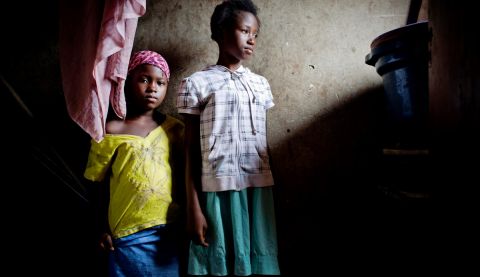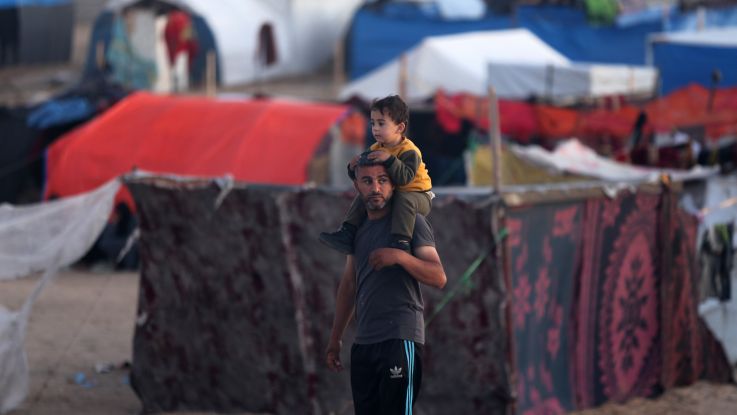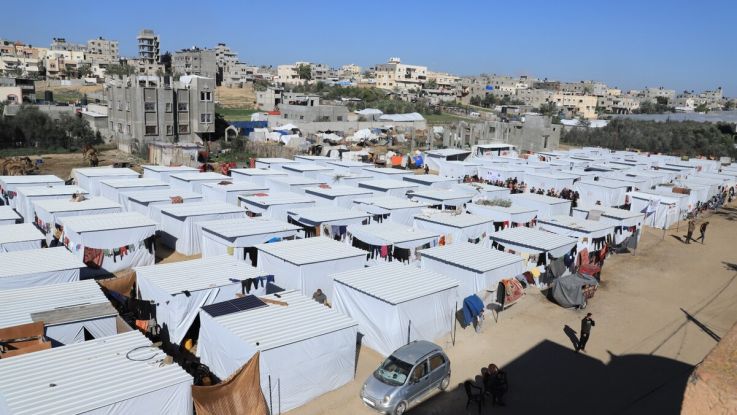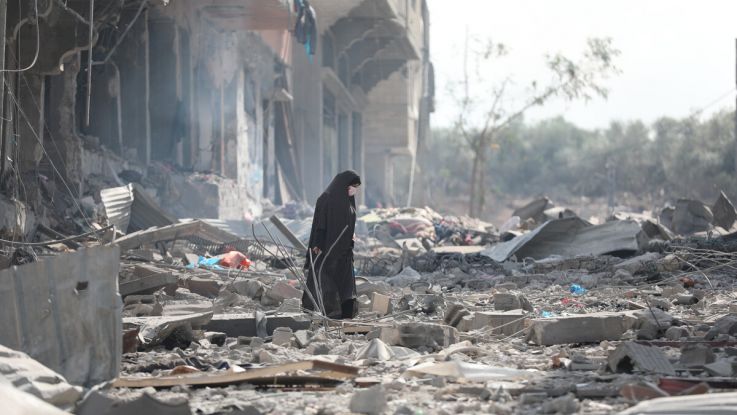The DRC Ebola outbreak explained
22 July 2019
Find out what Ebola is, what's happening in the DRC and how ActionAid are responding to the 2019 Ebola outbreak.

Children affected by the 2015 Ebola outbreak in Sierra Leone. Photo: Kate Holt/ActionAid
ActionAid is currently reacting to an outbreak of Ebola in the Democratic Republic of Congo (DRC), where at least 2,500 cases of Ebola have been recorded, and at least 1,600 people are reported to have died.
The outbreak is being described as second-worst in history, and the worst to have ever struck the DRC.
What is happening in the DRC?
The crisis in the DRC is severe, and complex. It was first declared in August 2018 and is not yet under control.
On 17 July it was declared a Public Health Emergency of International Concern by the World Health Organisation (WHO).
BREAKING NEWS: The #Ebola outbreak in #DRC constitutes a public health emergency of international concern, citing concerning geographical expansion of the virus: WHO Director-General, @DrTedros following the IHR Emergency Committee’s recommendation #alert
— World Health Organization (WHO) (@WHO) July 17, 2019
The outbreak is taking place in areas already affected by severe poverty, conflict and violence and, due to high levels of internal and external travel, there are grave concerns about cross-border infections.
On 15 July eastern DRC’s largest city, Goma, saw its first case of Ebola. The infected person was transferred to an Ebola centre and was pronounced dead the next day.
There is concern therefore about the spread of Ebola to Goma, which has an airport running international flights.
Meanwhile in neighbouring Uganda, 3 new cases of Ebola or death due to Ebola have been reported (as of 24 June 2019).
There is heavy conflict taking place in north-eastern DRC, which worsens the risk of the disease spreading. Since early June 2019 violence in the area has caused over 400,000 people to be displaced. Refugees are arriving into Western Uganda daily, increasing the risk of infection across Uganda.
Who is affected by the Ebola outbreak?
The epicentre of the outbreak is Beni, North Kivu, and the outbreak is mainly centred in the provinces of North Kivu and Ituri - both areas affected by conflict and armed violence. See the map below.
The areas are also among the most unstable and densely populated in the country, with high levels of human mobility.
As reported by WHO, women and children continue to be disproportionately affected by the outbreak. Children under 18 account for almost 30% of confirmed/probable cases, while women account for 57%.
Meanwhile women are usually the first responders in emergencies such as this, carrying the burden of care for sick children, husbands and relatives.
Misinformation and awareness is an ongoing challenge in areas of the DRC. To prevent the spread of disease bodies of the deceased must be taken away and tested for Ebola, which can cause additional stress and tension among grieving communities.
There are efforts being made, therefore, to ensure members of affected communities are better represented at an organisational level, including recruiting women and young people.
What is Ebola?
Ebola virus disease, formerly referred to as Ebola haemorrhagic fever (EHF), is an acute, serious illness with high levels of mortality.
The virus is found in the blood, body fluids or organs of an infected person or animal, and can be spread touching someone with the infection who has symptoms or someone who has recently died, by cleaning up bodily fluids, by having sex with an infected person without using a condom, and by handling or eating uncooked bushmeat.
First symptoms of the virus include a high temperature, headaches, joint and muscle pain and a sore throat. Symptoms can develop into diarrhoea, vomiting, internal and external bleeding.
What is ActionAid doing?
ActionAid is collaborating with local partners to prevent the spread of Ebola, raise awareness and help to prepare communities. We are planning to scale up our intervention with a focus on women as first responders. We are currently:
- Training women in how to prevent Ebola, including education about vital hygiene measures that people can take.
- Working with government and other organisations to ensure clear, accurate information is distributed to communities, in local languages.
- Working closely with ActionAid Uganda to prevent the spread of disease across borders.
We’ve worked in the DRC for over 30 years, and today we operate in 15 areas across the North and South Kivu Provinces, working closely with local groups who are rooted in communities and have the trust of local people.
Are sponsored children affected by Ebola?
ActionAid supporters are currently sponsors of children living in two communities in the DRC.
Neither of these communities have yet been affected by the Ebola outbreak, but we are working closely with the communities to help raise awareness and prevent the spread of disease.
What is ActionAid's approach?
ActionAid puts women and girls at the heart of our emergency response.
During the 2014-2016 Ebola outbreak in West Africa, we were one of the first international agencies to respond to the crisis. Working alongside local and international partners we supported over 500,000 people in Liberia and Sierra Leone.
Our response included:
- Training 7,000 students in Sierra Leone on hygiene and sanitation, to stop the spread of the disease in schools.
- Providing schools in Liberia with Ebola prevention and control kits. This included disinfectants, safety gear and hand washing stations to prevent the spread of the virus. We also trained 475 community members to maintain and repair the hand washing stations.
- Providing psychosocial support to women, girls, orphans and vulnerable children in 45 communities in Liberia. As a result, women from 36 of the counties reported that there was a reduction in stigma amongst Ebola survivors and survivors of gender based violence.
- In the long term, we’re helping orphans resume their schooling, supporting survivors to rebuild their livelihoods and income sources, tackling the stigma faced by families who were impacted by the disease.
Find out more about what ActionAid does, and our approach supporting women and girls in crises.



